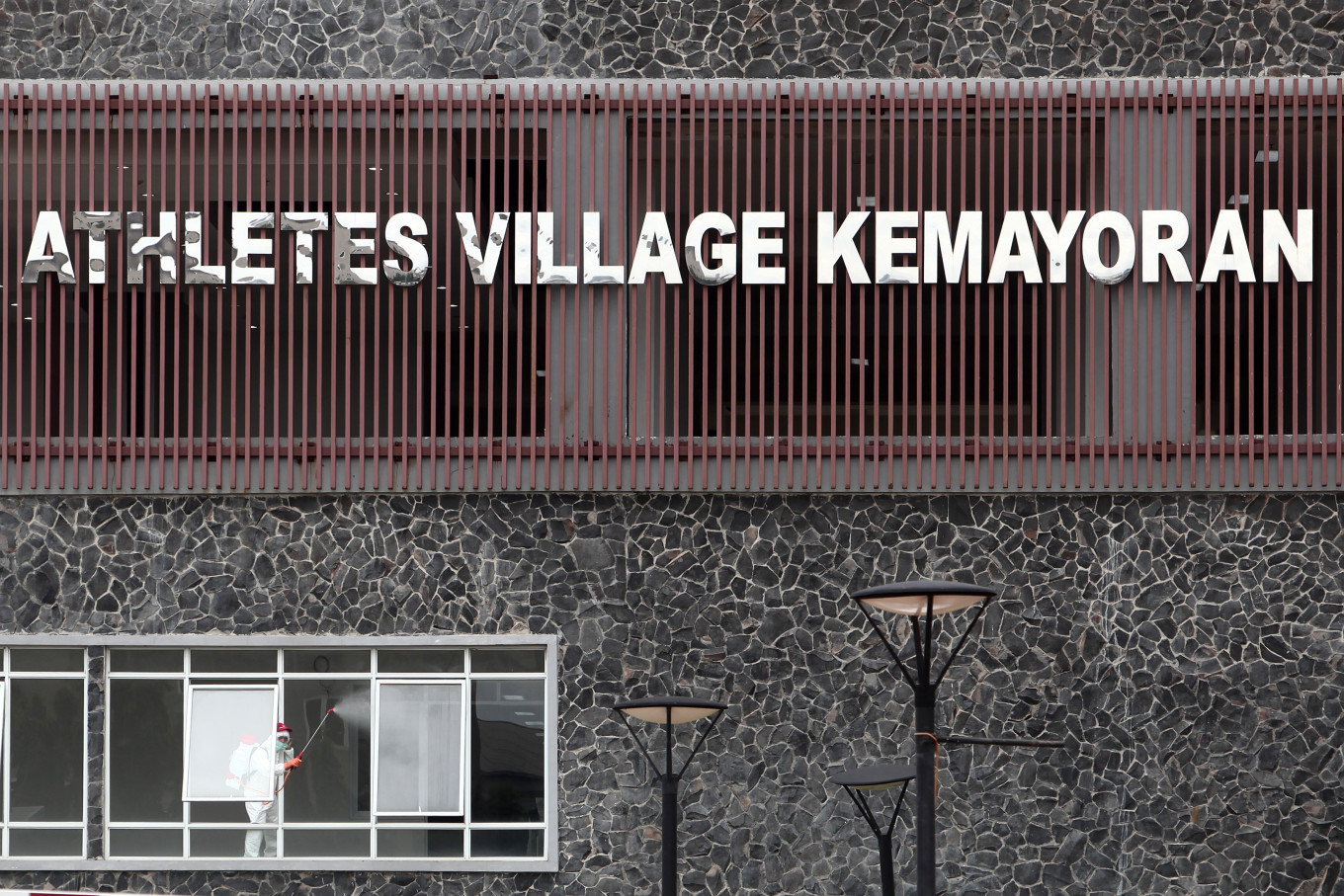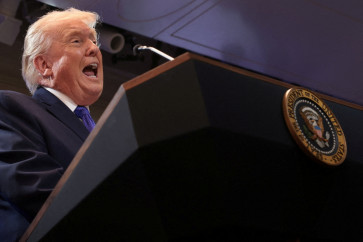Popular Reads
Top Results
Can't find what you're looking for?
View all search resultsPopular Reads
Top Results
Can't find what you're looking for?
View all search resultsSports leagues tighten their belts as COVID-19 sweeps through the nation
For the past few weeks, the COVID-19 pandemic has forced the sporting world to cancel some of the world’s most anticipated competitions. The effects of the coronavirus are not lost on the Indonesian sporting scene, as professional sporting competitions are forced to grapple with the financial impacts of the disease.
Change text size
Gift Premium Articles
to Anyone
F
or the past few weeks, the COVID-19 pandemic has forced the sporting world to cancel some of the world’s most anticipated competitions. From the postponement of the Tokyo Olympics – the sports world’s biggest stage – to July 2021, to the first cancellation of the Wimbledon Grand Slam after World War II, sporting events are not immune to the effects of the virus outbreak.
The effects of the coronavirus are not lost on the Indonesian national sporting scene, having forced the country to freeze its top tier soccer tournaments Liga 1 and Liga 2, which fans have not seen since last month. The Indonesian Basketball League (IBL) was one of the first to postpone its competitions, leaving only two more series and playoff rounds for the entire 2020 season.
The coronavirus outbreak has particularly highlighted the vulnerability of finances in the sporting world, with a whole roster of teams deprived of valuable time on the pitch, where most of their income comes from.
The Indonesian Professional Sports Body (BOPI) said late last month that the government should step in to assist the professional sporting leagues during this pandemic, but their demands have largely fallen on deaf ears.
The Soccer Association of Indonesia (PSSI) has decided to halt all competitions until May 29, pending further action by the government.
In a letter released by the association on March 27, PSSI organizers announced a state of emergency for three months beginning in April, effectively freezing all games for the period.
“If the government chooses not to extend the state of emergency, the PSSI will instruct Liga Indonesia Baru [as the league operator] to continue the first and second leagues on July 1,” said PSSI chief Mochamad Iriawan last week.
The postponements have raised questions about keeping players and coaches on a reduced payroll, part of wider austerity measures for dealing with the coronavirus outbreak in the country.
Iriawan said that clubs participating in Liga 1 and Liga 2 would be permitted to make some changes to the working contracts of their respective rosters, particularly as it relates to their salaries for March, April, May and June, so long as they are agreed upon between the two sides.
The association said that players, coaches and officials could receive up to a quarter of the full amount written in their respective contracts during those four months.
Some clubs have already implemented this measure.
The Persita Tangerang soccer club announced on Saturday that it would be paying its players, coaches and officials just 10 percent of their “normal wages for April, May and June, after deciding to pay the roster in full for March, according to a statement released by the club.
“However you see it, the postponement of the competition will negatively affect the club’s finances. We are forced to adapt to ensure the team remains operational,” said I Nyoman Suryanthara, the manager of Persita. “We’ve thought long and hard for this.”
Annas Fitranto, who plays in goal for Persita, previously told The Jakarta Post about his concerns about his monthly wage. He said he was quite shocked with the PSSI’s decision to allow clubs to negotiate a pay cut with their players, coaches and officials, considering the uncertainty of the situation.
“If the league is only postponed for two weeks, [...] it would barely affect us. But if it takes much longer, like three to four months, it definitely will hit us [badly],” Annas said on Thursday.
“I hope this pandemic will end soon.”
Separately, organizers of the Indonesian Basketball League will soon meet with the basketball clubs to determine the action they will take regarding changes to the players’ remuneration following the postponement of the league.
“We plan to meet with club managers [this] week to inform them of our stance regarding salaries. We’ve communicated the matter to the Indonesian Basketball Association (Perbasi) and next we will inform the clubs,” said IBL director Junas Miradiarsyah.
The IBL has said it would decide after May 29 whether or not to continue the league, pending the latest situation on the COVID-19 pandemic.
“If the situation is conducive to continuing and we are allowed to run the competition by then, we will immediately prepare for commencement as soon as June. If it doesn’t, however, we will tolerate a postponement until September or October,” he said recently.
“If we can’t continue the competition [by then], we will have to end the season. But we’ll try our best to continue because we have an obligation to the sponsors.”
The Youth and Sports Ministry previously declared that it would not financially support the sporting leagues during this COVID-19 pandemic, arguing that they are professional bodies in their own right that don’t require government funding.
“Professional sports bodies should not put a burden on the government with more subsidies. Since they are professionals, they should already have some sort of risk management [strategy] in place,” ministry spokesman Gatot S. Dewa Broto said, noting that his office already has allocated funds to mitigate the spread of the virus.
But sporting industry expert Djoko Pekik Irianto of Yogyakarta State University said the government should still be lending a hand to the industry, just as it is doing with other sectors.
“Professional sports can be categorized as an industry [in this country]. The government should not have to assist [stakeholders] with something like the distribution of funds, but instead think about postponing installment payments, for instance,” Djoko told the Post recently.










